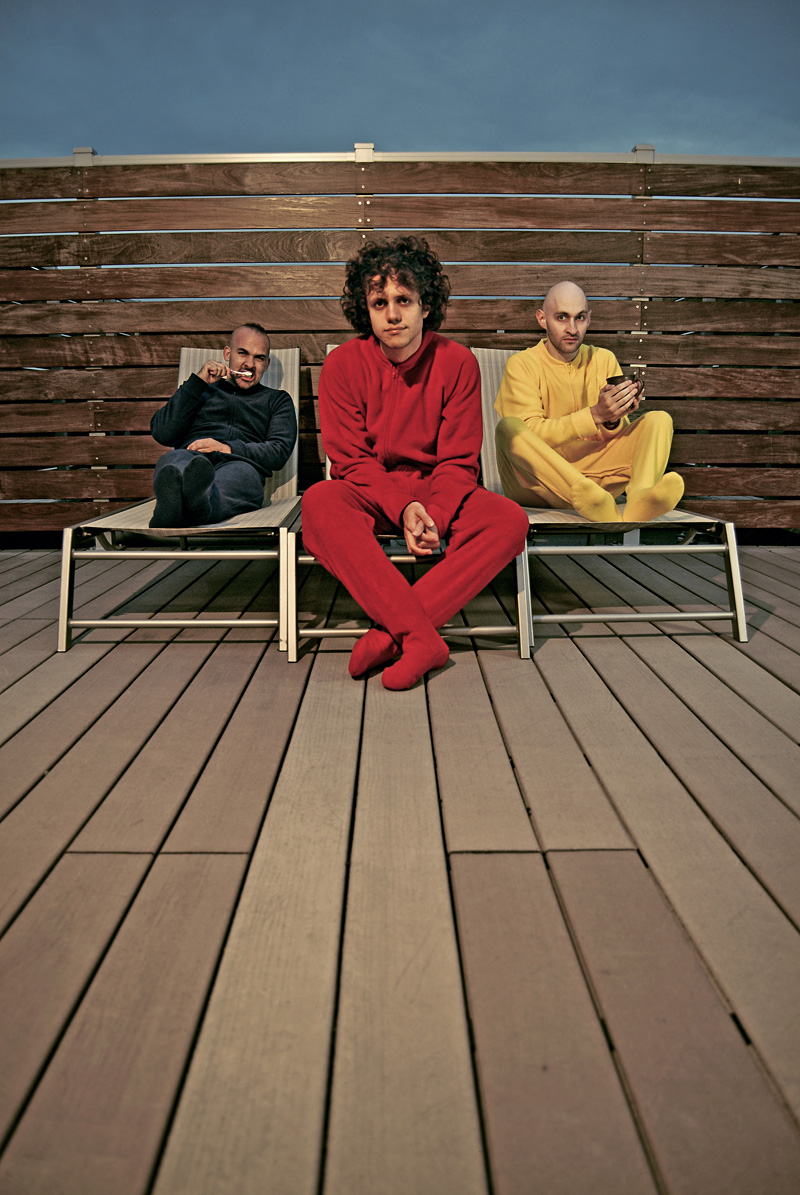When Seattle rap trio The Let Go released the album Anything Can Be on December 22, their label had 10,000 CDs ready for distribution, and the LP was promptly sent off to record stores and radio stations across the nation. The initial response was overwhelmingly positive, and the band soon found themselves featured on promotional posters and listening-station displays in Tower Records outlets and charting on pop radio stations in several large markets—including the nation’s second- and fourth-most-populated cities. In the month since the release, the band’s label, Goon Trax, estimates they’ve run through between 1,000 and 1,500 copies of the CD—a decent number for a local act, on par with the number of units local hip-hoppers Mad Rad sold to their dedicated, local live audience. Except that The Let Go doesn’t have a dedicated, local live audience. Confused?
No, Tower Records hasn’t made a comeback in the states, but it’s selling records in Japan, the same place The Let Go, curiously, have found an audience after years of local effort and shameless self-promotion proved fruitless.
“We certainly do not fit into the current, popular Seattle sound,” explains TLG’s MC Type—better known to his Homegrown sandwich-shop co-workers as Jeff Tune. “The electronic, party movement is cool. And I enjoy it. But we are far more [in] the vein of Atmosphere, Aesop Rock, and Sage Francis. And that stuff isn’t huge here.”
Back home, the group has struggled to gain a foothold, but not for lack of effort. They’ve pumped money and long hours into their recordings, but aside from a smattering of KEXP play and a bizarre combination of contest wins (including “Most Deserving of National Attention” in SW‘s 2009 online readers’ poll, which the group admits came mainly via out-of-town fans who had been prompted through web forums and e-mail lists), they weren’t well-known, and concert attendance here was fairly consistent with that of out-of-town shows. With tensions mounting and funds waning, the group decided to throw in the towel after the release of their second album, Morning Comes, last March.
The defunct band’s members resumed work on their solo projects for a few months until they received an e-mail with an offer from Goon Trax, the Japanese label to which they had submitted material after putting out their first album, Tomorrow Handles That, in 2008, then again while recording its follow-up. Goon Trax had the idea of remastering selected TLG songs lifted from their two self-released U.S. albums, and releasing them to the Japanese public as a new third album. All the group had to do was choose the “new” album’s title, sign the contract, and cash the check. Now that they’ve found an audience, they’re ready to give things another try back home.
“The Japan thing kinda brought us back together,” says producer Captain Midnite (real name: Joe Symanski), “and made us realize we can really do something real with it.”
Tune, who lays claim to one of the raunchiest vocabularies in town, says the comparative ease of success has come as a bit of a surprise after years of fighting an uphill battle for recognition in their hometown, but he’s grateful for the new opportunity.
“I will go anywhere that people appreciate my music,” he says. “It makes sense, in my case in particular, that they might not understand the words . . . seeing as I am a foul-mouthed individual.”
Ian Waller, who appears on record as Kublakai, the (slightly) mellower half of the group’s MC corps, says, “We all didn’t expect anything. When they told us about it, ‘We’re gonna be selling it to our vendors,’ that to me kind of meant they’d be selling it on street corners, you know, bootlegs . . . so when we saw the pictures and heard the news, it was pretty cool, and a pretty big deal. We didn’t think it was gonna be that legit, and it was.”
Philipp Potz is the Goon Trax producer responsible for much of their trans-Pacific exposure; he attributes the attention to the somewhat outmoded musical leanings of the country’s rap listenership.
“Japanese hip-hop fans still like the jazzy, mellow ’90s-style hip-hop, even though this trend has long vanished from the U.S. hip-hop scene,” he said in an e-mail. “The Let Go create a wonderful blend of melody-infused beats as well as smooth MCing, which works out here pretty well.”
This outsourcing approach has become increasingly common in Japan, aided by the growing ease of transferring large amounts of music electronically, and Goon Trax has taken advantage of the U.S.’s vast pool of hardworking rap artists for a number of years, although this is the first time they’ve signed on to work with a Seattle group. Artists like Nieve (Los Angeles), CL (aka Chaotic Lynk, from New York), and ArtOfficial (Miami) have become legitimate success stories in Japan, despite their mostly humble standing in this country. ArtOfficial may even be flown overseas to tour with Japanese artists this year, says Potz, a rare feat due to the obvious expense. He goes on to explain that opportunities like this could become available for The Let Go as well, although he estimates their sales would have to creep closer to the 5,000-unit mark for promoters to consider the idea.
The three members now hope their foreign success will translate to larger local audiences, and have begun to book shows again, including a headlining spot at Nectar Lounge on February 18. As for whether another stateside album is in the cards, Symanski emphasizes that he would love to see it happen, as long as it’s clear the demand is there. “It also does depend on what Japan wants,” he says. “If we end up doing really, really well out there, we might have to release a bunch of music just for them.”





